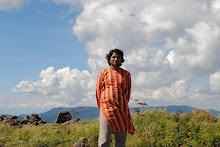this was reported in the Hindu
http://www.thehindu.com/opinion/op-ed/article828761.ece
WWF report shows resources are being used at 1.5 times the rate nature can replace them — but long-term decline of animal life appears to have been halted.
The Earth's population is using the equivalent of 1.5 planets' worth of natural resources, but the long-term decline of animal life appears to have been halted, a WWF report shows.
The latest Living Planet report, published on Wednesday by the conservation group, also reveals the extent to which modern Western lifestyles are plundering natural resources from the tropics at record levels.
The report shows that the overall health of animal species — considered an important indicator of the health of ecosystems — has remained roughly constant since the beginning of this decade, after at least three decades of steady decline.
However the global figure masks a growing gap between the temperate zones to the north and south of the equator. Since 1970, richer countries in the temperate zones have enjoyed a 30 per cent rise in populations of the more than 2,500 different mammal, bird, reptile, amphibian and fish species monitored — largely because of improvements to water and air quality and conservation work. Tropical zones, in contrast — where most of the planet's volume and variety of species live — have seen a dramatic decline of about 60 per cent.
The report compares these results to the latest measurements of the size of the ecological footprint — the area of the planet's surface required to provide the resources consumed in a year — of citizens in different countries.
This shows that overall, the Earth's population is consuming the resources of 1.5 planets — or it takes one-and-a-half years to replenish the resources used in one year. This again masks vast differences between the lifestyles of people from mostly poorer countries with footprints of less than one-fifth of a hectare each, and those in the richest nations who each need a nominal five hectares or more. The global average is about three hectares.
“There's going to be global trade and that's not always a bad thing,” said Colin Butfield, head of campaigns for WWF. “[But people] in many subsistence countries depend on their local water source and if upstream you have got a big industrial cotton- or soy-growing plant, we're starting to affect in many many cases around the world the ability for poor people to develop, feed themselves, industrialise, to supply basic products we use every day: soy beans for cattle, cotton for clothing, and so on.” “We're also taking away the natural capital of those countries, and only a small number of people in those countries benefit.” The centrepiece of the biennial Living Planet report, published in collaboration with the Zoological Society of London and the Global Footprint Network, is the Living Planet index, which tracks the decline or increase of nearly 8,000 populations of more than 2,500 different species. The resulting chart of progress over time — likened to a stock-market index — shows how from a base of one in 1970, those populations changed little in the 1970s, declined noticeably in the 1980s and 1990s, and have stabilised at about 0.7 since the early years of this decade.
The real picture is, however, likely to be worse, because the latest report includes new animal populations, and because there are still many tropical species which have not been identified by scientists yet, said Mr. Butfield. The living planet index also does not directly measure other problems such as plant biodiversity, water and air pollution, and the greenhouse gas emissions blamed for climate change — issues more likely to be reflected in the ecological footprint figures.
The report, which is published just weeks before a major conference on slowing or halting the loss of biodiversity in Nagoya, Japan, calls for a series of changes to help address the problems, including more protected areas, zero net deforestation, eliminating overfishing and destructive fishing practices, and finding ways to put a value on biodiversity and ecosystem services. — © Guardian Newspapers Limited, 2010
Subscribe to:
Post Comments (Atom)




1 comment:
This is what I too believe. There are some people who are hogging the resources. As if, that was not enough. they have made others to fulfill their wishes. Nothing much have changed since colonization. That time Indigo was produced by the dying farmer to dye cloths of British. Now soy is produce to fatten the pig for the sake of pork by the malnourished farmers. As money rules market will give more price for such crop. there will not be any choice left for the farmers than to produce that.
Post a Comment